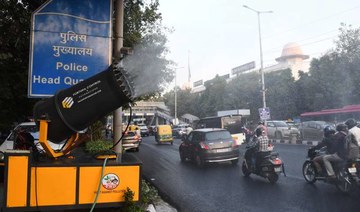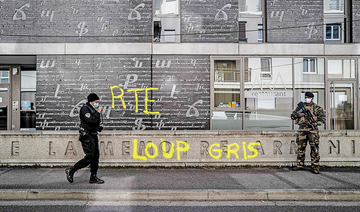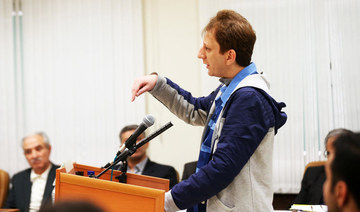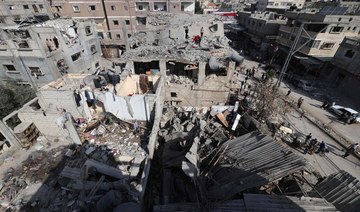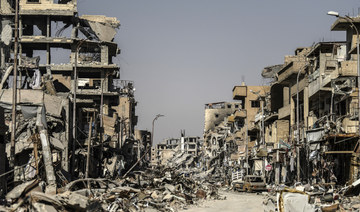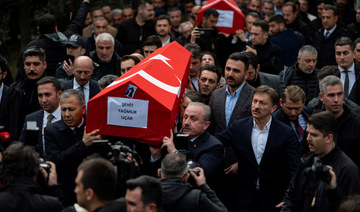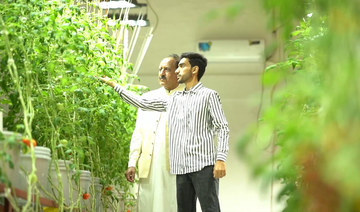DUBAI: As winter nears and coronavirus cases surge across the Middle East, the regional director for the World Health Organization said Thursday that the only way to avoid mass deaths is for countries to quickly tighten restrictions and enforce preventative measures.
In a press briefing from Cairo, Ahmed Al-Mandhari, director of WHO’s eastern Mediterranean region, which comprises most of the Middle East, expressed concern that countries in the area were lowering their guard after tough lockdowns imposed earlier this year.
The fundamentals of pandemic response, from social-distancing to mask wearing, “are still not being fully practiced in our region,” he said, adding that the result is apparent throughout the region’s crowded hospitals.
Noting that the virus had sickened over 3.6 million people and killed more than 76,000 in the region over the past nine months, Al-Mandhari warned “the lives of as many people — if not more — are at stake,” urging action to “prevent this tragic premonition from becoming a reality.”
More than 60% of all new infections in the past week were reported from Iran, Jordan and Morocco, he said. Cases are also up in Pakistan and Lebanon, which went under lockdown earlier this week. Jordan, Tunisia and Lebanon have reported the biggest single-day death spikes from the region.
Worst off in the region has been Iran, where infections have soared in recent months, filling up hospitals and driving up the death toll. Iran shattered its single-day death toll six times in the last two weeks, bringing the total count of fatalities past 43,400 — the highest in the Middle East.
Surging deaths have pushed the Iranian government, long reluctant to impose a lockdown for fear of cratering its sanctions-hit economy, to tighten restrictions in the capital of Tehran and other major cities. But with little enforcement, the outbreak shows no sign of abating.
From Pakistan, Faisal Sultan, special assistant to the prime minister for national health services, told reporters the winter surge had arrived. Although Pakistan managed to control the outbreak with targeted restrictions earlier this year, the forecast turned more alarming as the country unlocked, he said.
“The second wave is just as risky if not more than the first,” Sultan said, adding that winter in Pakistan brings an increase in social interaction, with schools, events and wedding parties in full swing. “There is a sense of complacency and fatigue in compliance.”
Tunisia is another country that thought its worst virus days were in the past, only to see cases soar in recent weeks. It loosened restrictions in a bid “to cautiously coexist” with the virus, said Faycal Ben Salah, director general of health, after officials decided the lockdown was killing the economy and creating “catastrophic social consequences.”
While Al-Mandhari cautiously welcomed news of viable vaccine candidates, he said the pandemic was far from over.
“We cannot — and should not — wait until a safe and effective vaccine becomes readily available for all,” he said. “We simply do not know when this will be.”
WHO warns of deadly second wave of virus across Middle East
https://arab.news/9e5kh
WHO warns of deadly second wave of virus across Middle East
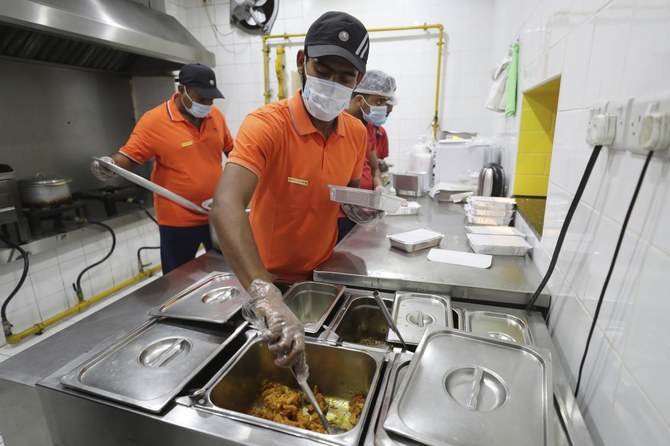
- The WHO expressed concern that countries in the area were lowering their guard after tough lockdowns imposed earlier this year
EU offers 1 billion euros to support Lebanon
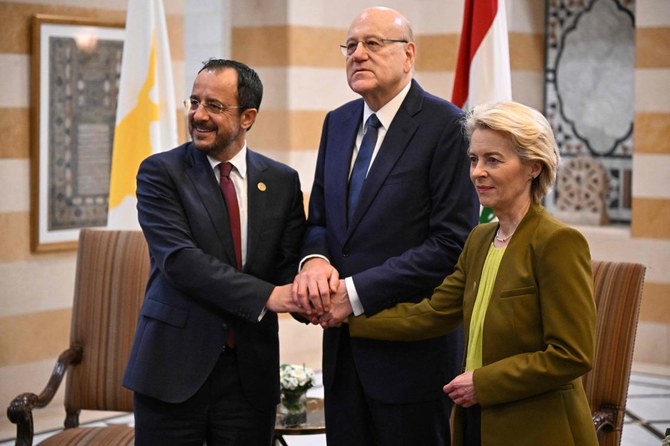
The funds would be available from this year until 2027, von der Leyen told a joint news conference with Lebanon’s Prime Minister Najib Mikati and Cypriot President Nikos Christodoulides. She also said the EU would support Lebanon’s armed forces with equipment and training for border management.
Iran slaps sanctions on US, UK over Israel support
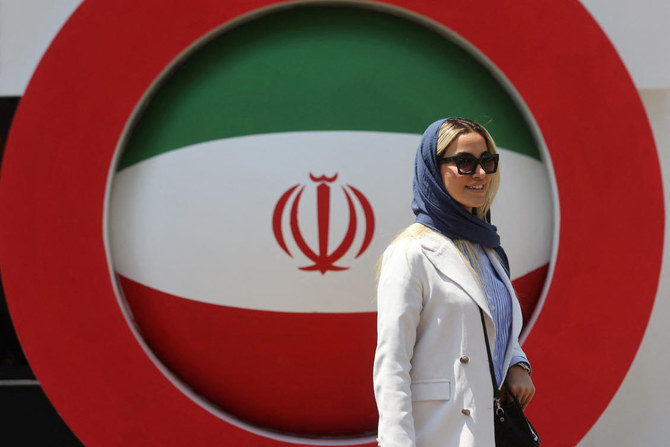
- Sanctions targeted seven Americans
- British officials and entities targeted include Secretary of State for Defense Grant Shapps
TEHRAN: Iran announced on Thursday sanctions on several American and British individuals and entities for supporting Israel in its war against the Palestinian militant group Hamas.
The Islamic republic, the regional arch-foe of Israel, unveiled the punitive measures in a statement from its foreign ministry.
It said the sanctions targeted seven Americans, including General Bryan P. Fenton, commander of the US special operations command, and Vice Admiral Brad Cooper, a former commander of the US Navy’s Fifth Fleet.
British officials and entities targeted include Secretary of State for Defense Grant Shapps, commander of the British army strategic command James Hockenhull and the UK Royal Navy in the Red Sea.
Penalties were also announced against US firms Lockheed Martin and Chevron and British counterparts Elbit Systems, Parker Meggitt and Rafael UK.
The ministry said the sanctions include “blocking of accounts and transactions in the Iranian financial and banking systems, blocking of assets within the jurisdiction of the Islamic Republic of Iran as well as prohibition of visa issuance and entry to the Iranian territory.”
The impact of these measures on the individuals or entities, as well as their assets or dealings with Iran, remains unclear.
The war in the Gaza Strip erupted after the October 7 attack by Palestinian militants on Israel which killed 1,170 people, mostly civilians, according an AFP tally based on official Israeli figures.
Iran backs Hamas but has denied any direct involvement in the attack.
Israel’s retaliatory offensive against Hamas has since killed at least 34,568 people in Gaza, mostly women and children, according to the Hamas-run territory’s health ministry.
12-truck UAE aid convoy enters Gaza Strip
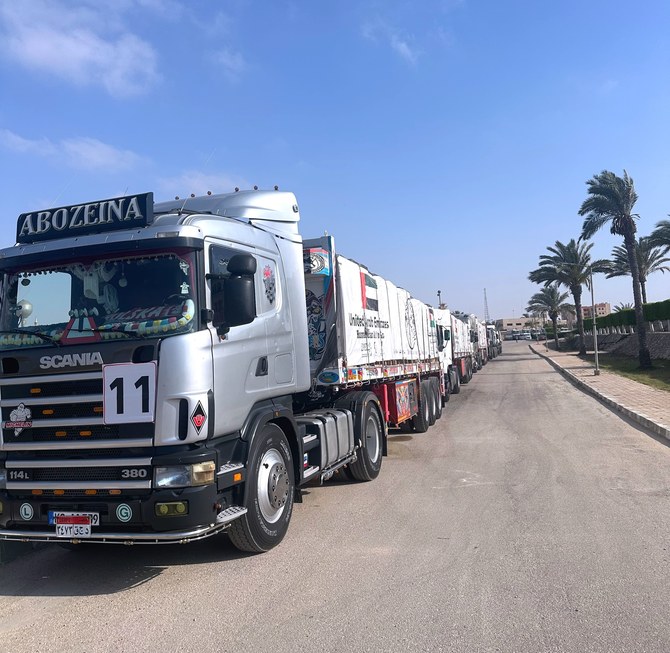
- UAE has also sent Palestinians food, water via sea, air
- Emirates has provided medical treatment for thousands
Al-ARISH: A UAE aid convoy entered the Gaza Strip on Wednesday via Egypt’s Rafah Crossing Point as a part of the country’s “Operation Chivalrous Knight 3” project to support the Palestinian people, UAE state news agency WAM reported on Thursday.
The 12-truck convoy is transporting over 264 tonnes of humanitarian aid including food, water and dates.
The latest convoy now brings to 440 the number of trucks that have been used for support efforts.
As of May 1, 2024, the UAE has now provided the Palestinians 22,436 tonnes of aid, which has included the deployment of 220 cargo planes and three cargo ships. The goods pass through Al-Arish Port and the Rafah crossing into Gaza.
These efforts are a part of the “Birds of Goodness” operation, which involves aerial drops of humanitarian supplies. By Wednesday, 43 drops have been conducted, delivering a total of 3,000 tonnes of food and relief materials to inaccessible and isolated areas in Gaza.
Since its establishment, medical staffers at the UAE’s field hospital in Gaza have treated more than 18,970 patients. An additional 152 patients were evacuated to the UAE’s Floating Hospital in Al-Arish Port, and 166 to the UAE for treatment.
The UAE has set up six desalination plants with a production capacity of 1.2 million gallons per day to support the people in Gaza.
Syrians accuse Russia of hitting hospital in new complaint filed with UN rights committee

- Moscow has repeatedly denied accusations that it violated international law in Syria
BEIRUT: A Syrian man and an aid organization have accused Russia of violating international law by deliberately bombing a hospital in northern Syria in 2019, in a new complaint filed at the United Nations Human Rights Committee this week.
Russia, which intervened militarily in Syria’s conflict in 2015 to bolster the forces of its ally President Bashar Assad, has been accused by UN investigators of committing war crimes in Syria, but has not faced any international tribunal.
Moscow has repeatedly denied accusations that it violated international law in Syria.
The new complaint, filed on May 1 but made public on Thursday, accuses Russia’s Air Force of killing two civilians in a series of air strikes on the Kafr Nobol Surgical Hospital in the northwest province of Idlib on May 5, 2019.
It was brought to the committee by the cousin of those killed and by Hand in Hand for Aid and Development, an aid group that was supporting the hospital, which was in territory held by armed groups opposed to Assad.
The complaint relies on videos, eyewitness statements and audio recordings, including correspondence between a Russian pilot and ground control about dropping munitions.
“Syrians are looking to the Human Rights Committee to show us some measure of redress by acknowledging the truth of this brutal attack, and the suffering caused,” said Fadi Al-Dairi, the director of Hand in Hand.
The Geneva-based Human Rights Committee is a body of independent experts that monitors the status of political and civil rights around the world, and can receive complaints by states and individuals on alleged violations.
Individual complaints can lead to compensation payments, investigations or other measures.
While rights groups have accused both Syria and Russia of violating international law within Syria for years, neither country is party to the International Criminal Court’s Rome Statute, and opportunities for accountability are rare.
Russia signed onto the Optional Protocol to the International Covenant on Civil and Political Rights in 1991, meaning it accepts the Human Rights Committee’s ability to consider complaints from individuals against it.
“This complaint before a preeminent international human rights tribunal exposes the Russian government and armed forces’ deliberate strategy of targeting health care in clear violation of the laws of war,” said James A. Goldston, executive director of the Justice Initiative, whose lawyers are representing the applicants.
In 2019, the UN Human Rights Commission — a separate body — said strikes on medical facilities in Syria including the Kafr Nobol hospital “strongly” suggested that “government-affiliated forces conducting these strikes are, at least partly, if not wholly, deliberately striking health facilities.”
Morocco’s farming revolution: defying drought with science
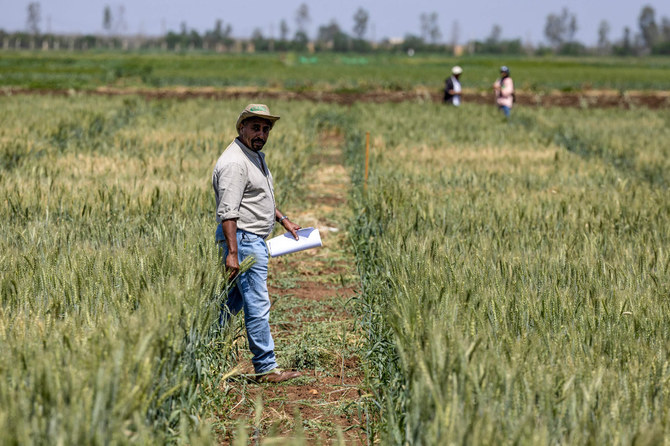
- In the face of “extremely high” water stress, Morocco's cultivated areas are expected to shrink to 2.5 million hectares drastically
- The kingdom's agricultural research agency aims to develop genotypes that not only withstand drought and heat but also yield abundantly
MARCHOUCH, Morocco: In the heart of sun-soaked Morocco, scientists are cultivating a future where tough crops defy a relentless drought, now in its sixth year.
“Look at these beautiful ears of wheat,” said Wuletaw Tadesse Degu, the head of wheat breeding at the International Center for Agricultural Research in Dry Areas (ICARDA).
“The difference in quality between our field and others is striking,” he said, pointing toward a lush expanse in Marchouch, south of Rabat, that stood in stark contrast with the barren lands elsewhere.
By 2040, Morocco is poised to face “extremely high” water stress, a dire prediction from the World Resources Institute, a non-profit research organization.
Figures from the North African country’s central bank paint a grim picture.
Cultivated areas across the kingdom are expected to shrink to 2.5 million hectares in 2024 compared with 3.7 million last year, with cereal yields more than halving to 25 million quintals (2.5 million tons) over the same period.
“It has become essential to use resilient seeds and to employ them as quickly as possible,” said Tadesse, whose center recently inaugurated a plant gene bank.

Tadesse’s mission is to develop genotypes that not only withstand drought and heat but also yield abundantly.
Last year, while the nation struggled, Marchouch achieved a yield of four tons per hectare with just 200 millimeters of rainfall.
Controlled irrigation and strategic sowing techniques are behind this agricultural revolution.
Looking to maximize production, farmers are experimenting with planting times and judicious irrigation.
Even a scant 10 millimeters of water, carefully applied, transformed barren soil into thriving fields.
Barley, too, has seen a resurgence, with yields jumping from 1.5 to two tons per hectare last year, thanks to climate-smart genotypes, said Miguel Sanchez Garcia, a barley specialist at ICARDA.
The center, which operates in 17 countries in Africa and Asia, says it has developed 30 “elite lines” of grain.
Most of them are produced in Morocco by breeding genotypes of wild wheat with different ancestors, said ICARDA genetics researcher Ahmed Amri.

Moroccan agricultural authorities approved six new wheat and barley varieties last year, but bureaucratic hurdles loom large.
Approval processes drag on, impeding the timely dissemination of new varieties to farmers, researchers at the center said, resulting in a five-year journey from approval to market-ready seeds.
“The certification system takes too long and should be revised quickly,” said Moha Ferrahi, head of genetic resources conservation and improvement at the National Institute of Agricultural Research.
Ferrahi also pointed to the lack of engagement from private companies and farmers who opt for “foreign seeds to have a quicker return on investment while these seeds are not adapted to the climate of Morocco.”
Yet many see room for improvement, even in a drought-hit country where the average citizen consumes about 200 kilogrammes of wheat per year — significantly above the world’s average, according to official figures.
“Unlike countries like Egypt or Ethiopia, Morocco has chosen to liberalize its market,” said researcher Amri, meaning that authorities have no control over what varieties farmers select.
But Amri remains convinced that, coupled with the national agricultural program, the widespread adoption of resilient varieties will help offset mounting losses.



